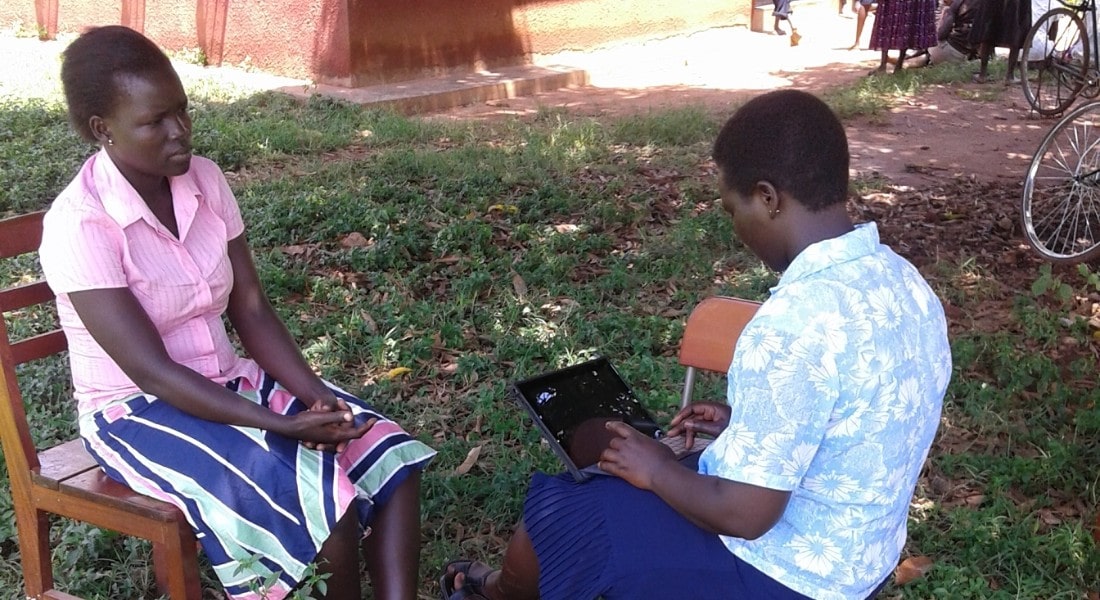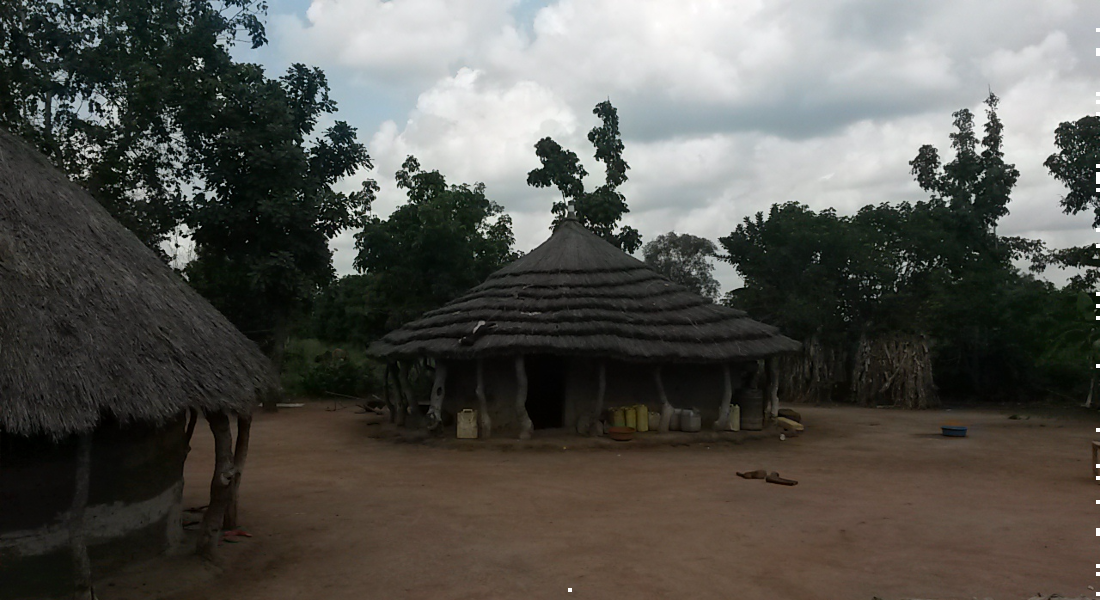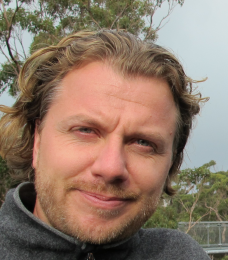University of Copenhagen is increasing its efforts within global mental health
With the employment of professor Wietse A. Tol and postdoc Lena Skovgaard Andersen, a team is set to build on and strengthen existing efforts around global mental health at University of Copenhagen. We have asked Tol what the research priorities within global mental health are at the moment and what projects he and colleagues will be focusing on in the future.

Mental health gets less than 1% in the budget
Global mental health is a new term for work that has been going on for a long time. As a term global mental health became more established in 2007 with the publication of a series of papers in the journal The Lancet. As a field, it focuses on strengthening the mental health of populations that are facing health inequities and structural barriers allowing them to enjoy good mental health.
A central idea to global mental health research and practice is to ensure that there is more equitable access to good mental health. And that often means that researchers and practitioners try to provide mental health services in areas where there are none or very limited mental health services. This can for example be with refugees, immigrants or very poor populations that are structurally marginalized in Denmark or it can be in Uganda, where the government is challenged to invest as needed in mental health services. In low- and middle income countries the mental health system often gets less than one percent of the complete health budget.
“What you often see is that there are these mental health systems in low and middle income countries inherited from colonial times. Psychiatric hospitals may be in a bad state from a human rights point of view. For example, people might be chained, they may get involuntary treatment and the hygiene practices are bad. Those are some of the worst places to be in the world” Tol explains.
One of the areas for global mental health is mental health in humanitarian settings, for example in areas of armed conflict or disasters. But global mental health can also focus more broadly on strengthening health systems, for example, ensuring that there is a community based mental health system with respect to human dignity.
The social determinants of mental health
In 2007, many people joined under this new umbrella term global mental health but there has also been conflict. Some have felt that global mental health has been focused too much on bringing treatments from ‘the West’ to very diverse cultures and contexts. To these critics, global mental health is not taking into account what kind of mental health practices already exists and how to build on them. These critics argue that it is important to look at the influence of culture on people's well-being and mental health. For example, what kind of role does religion and traditional healing have on improving and maintaining a person’s mental health.
Wietse agrees with this critique of the term global mental health and adds that global mental health has tended to be focused more on clinical approaches. Initially, global mental health was mostly focused on the treatment of disorders and it paid less attention to the social determinants of mental health – characteristics of your environment that may cause you to suffer emotionally, like poverty, gender based violence, being marginalized based on sexual orientation etc.
“I think we need to be careful, for example when considering the situation of a woman in rural Afghanistan who may have very limited power in her household and is facing violence on a daily basis, sanctioned by the community, and who comes to a primary care clinic with complaints of sadness, worry and back aches to only provide her with psychotherapy for depression and say “Now, go back to your home” without also addressing the lack of power and violence in the house and other issues from a social justice perspective” Tol explains.
The field of global mental health is changing in response to these critiques, but to Tol, interventions that focus on the social determinants of mental health are a critical priority and this is where he wants to focus his future work at University of Copenhagen.
Focus should be on local capabilities
Universities like Johns Hopkins University, the London School of Hygiene and Tropical Medicine, King's College and many others, have been engaged in global mental health for some time now. And Wietse and his colleagues are excited to build on the work going on at the University of Copenhagen. But Wietse would like to highlight one further issue:
“I think it is important to recognize the role of the universities in low- and middle income countries where most mental health research takes place. It is important that these universities are in the driving seat or centrally involved. Many global mental researchers take this point very seriously but we – the representatives from the Global North universities - still have a lot to learn about how to do this well.”
As in other fields, we see a decolonising movement within global mental health and Wietse Tol think this is a good thing.
Future global mental health projects at University of Copenhagen
Director of the School of Global Health and Head of University of Copenhagen’s Global Health Section, Flemming Konradsen, is very excited about Wietse Tol joining the global health research and educational environment at the university:
“He is an international leader in the field of global mental health and his ideas, skills and network will significantly strengthen and compliment the ongoing work in global mental health. With increased capacity at the University of Copenhagen we can more actively engage with the growing number of international civil society organizations using Copenhagen as a hub for mental health programming. With Wietse and colleagues on board, we aim to increase the emphasis on mental health in future projects on international capacity development and research on e.g. migration and humanitarian settings” Konradsen explains.
Low-intensity interventions among South Sudanese male refugees
Wietse is involved in several projects that will now be based at the University of Copenhagen. One of them is called SH+ Men and focuses on male refugees in Uganda, trying to identify lower-intensity interventions, i.e. interventions that do not require many human resources like for example one-on-one therapy sessions with a trained psychologist. In SH+ Men, collaborators are looking for scalable psychological interventions that can reach large groups of people. Uganda hosts over a million refugees and the South Sudanese refugee crisis is the largest refugee crisis in Africa and third largest in the World.
Many of the mental health interventions being tried out look very similar to what therapy looks like in Western countries with the big difference that it's not a therapist – a trained clinical psychologist, for example – that provides the intervention but a community health worker or a primary health care worker.
“It's called task shifting – a very popular method in global mental health. But the problem with that is that it still takes a lot of resources to train the community health workers, the nurses, the midwives and the general physicians and to supervise them on an ongoing basis. And that means that we are not reaching a larger group of people that needs mental health support” Tol explains.
The World Health Organization has developed a self-help intervention that can maybe fill this gap. In the project, Wietse and colleagues at HealthRight International have worked on developing and testing a guided self-help intervention. You bring 25-30 people together - which is much more than you normally bring together in psychotherapy groups – in a tent for a stress management workshop. In the workshop you play audio and people get a book with drawings to look in. Because it is structured in this way, it requires much less in terms of training and supervising the workshop facilitators. It has been tested among female refugees in Uganda and they found that it worked with them. However, it did not work so well with men. So the project now focuses on how to get the men engaged in this kind of low intensity intervention. The project is funded by Research for Health in Humanitarian Crises.

Alcohol misuse and associated adversities among conflict affected populations
A second project is called CHANGE and it also focuses on male refugees in Uganda as well as internally displaced men in the Ukraine.
“In general, it can be quite hard to get men to talk about their emotions during traditional psychological interventions. Overall, not enough is done enough to tackle alcohol misuse in refugee camps – especially among male refugees. Often, you are not allowed to work as a refugee if you live in a camp. It is the NGO or the government that becomes the provider for the family and that can change the traditional role of men. Men may feel like they lose their dignity when they are no longer the family head or the breadwinner. Also, boredom may be a critical issue that contributes to increased alcohol misuse, and this in turn can contribute to higher levels of domestic violence.”
The project is aimed at developing and evaluating an intervention that combines an intervention focusing on alcohol misuse and an effective existing World Health Organization intervention with a problem solving counselling approach called Problem Management Plus. The project lead is the London School of Hygiene and Tropical Medicine, funded by Wellcome Trust. The implementing partner is HealthRight International – the NGO that Tol worked for when he lived in Uganda, and continues to be involved with.
Psychosocial support in women's protection work in Panama and Ecuador
A third project focuses on forced migrants in Panama and Ecuador and the integration of a mental health and psychosocial support component into women’s protection work.
“Domestic violence or intimate partner violence and alcohol misuse are key related issues when considering the determinants of mental health in conflict-affected populations. So in this project, we would like to know how we can add a mental health component to women's protection work for displaced women who are facing intimate partner violence. In addition to ensuring safety within communities and families, how can we support women’s mental health so that they are in the best position to protect themselves from violence” Tol explains.
The project partner is HIAS and the project is funded by USAID under the HEARD initiative.
The global mental health research agenda for the next ten years
The fourth project is aimed at developing a research agenda for mental health and psychosocial support in humanitarian settings for the coming ten years. In other words, which research questions are the most important ones to answer within the next ten years. It has been ten years since the last time a research agenda for this field was made.
“This study consists of a number of different components. One component is that we will consult with practitioners in three different countries – Lebanon, the Philippines, and Uganda - and ask people working on the ground what their research priorities are. We want to make sure that those who are working in humanitarian settings, in remote locations, get to have a voice in determining what the research agenda should look like. We will also ask people who take part in mental health programs in humanitarian settings for their thoughts. Another component is a social media component to get people working within global mental health engaged in the discussion about what should be the future research priorities in humanitarian settings. And thirdly, we will gather a panel of experts to help us generate the research questions” Tol explains.
Global mental health at UCPH
If you are interested in other global mental health projects by University of Copenhagen, please see:
- Scaling up of a community-based alcohol education program in rural Sri Lanka
- Enabling Best Possible Childbirth Care in Tanzania - The PartoMa Project
- Danish Research Center for Migration, Ethnicity and Health
If you want to collaborate or know more about global mental health at University of Copenhagen, please contact Wietse A. Tol on tol@sund.ku.dk
About Wietse A. Tol

Wietse A. Tol is a psychologist by training with a masters in clinical and health psychology from the University of Leiden, the Netherlands. As part of his masters training he did a research internship at the Center for Victims of Torture in Nepal. When he returned to the Netherlands he worked as a psychologist, providing support to the survivors of the 2000 Dutch fireworks disaster and in a child and youth department.
His time in Nepal sparked an interest in research, so he quickly said yes to a PhD opportunity in Nepal, which ended up as his base for the next seven years. He enjoyed having a foot in the world of practice besides his research activities and towards the end of his PhD he got an opportunity to be engaged in a research project focused on children affected by armed conflict in Burundi, Indonesia and Sri Lanka.
In 2010 he started a postdoc position at Yale University for two years, and in 2012 he joined as an assistant and later associate professor at Johns Hopkins University (working from Uganda from 2014) until his employment as a professor at the Global Health Section at University of Copenhagen from 1 May 2020.
In 2014 he started working part-time for the NGO HealthRight International as the director of the Peter C. Alderman Program for Global Mental Health. He is still collaborating with this NGO.
